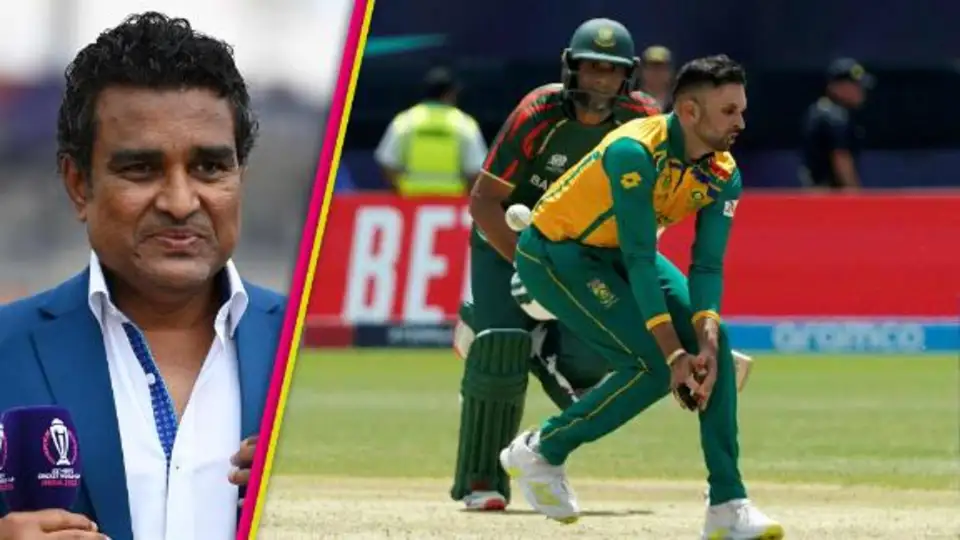In reality, South Africa’s Klaasen choice to bat first on Monday at the T20 World Cup 2024 in New York—a pitch they have won two matches chasing—was an homage to Bangladesh’s bowlers.
Player of the Match Heinrich Klaasen said, “Third game on the wicket,” in response to the call. “When the wicket slows down, these guys are amazing. Thus, the main reason we decided against chasing 120 was that. because compared to previous games, the wicket was unquestionably superior. Bangladesh, however, has some of the greatest cutter bowlers in the world and excellent spinners, so when the chips are down, they can turn to them. Therefore, it was the main factor in our decision to bat first.”

At 23 for 4, South Africa Klaasen was in serious danger, but they made the decision to escape, just as they would have in an ODI’s middle overs. They knew going into the T20 that they would only be going for one run every ball, not caring if they fell short of six runs per over as long as they were within striking distance.
“I think David [Miller] showed us in the previous game [against Netherlands] how to bat on this wicket and it’s almost a similar way that we bat in the middle overs in a one-day game,” Klaasen said. “Therefore, our perspective is nothing like T20 cricket. All you want to do is go in and figure out how to hit a run-a-ball. Furthermore, we are aware that you are just one or two hits away from achieving a run-a-ball strike rate.”
“I should have finished the game,” said Hridoy.
In these circumstances, three teams have engaged in tight pursuits. Under Miller’s leadership, South Africa Klaasen prevailed even though they were never in the lead. Pakistan tried the same strategy and lost. Bangladesh lost an early wicket, but they were never able to overtake the chase, or were never given the opportunity. Towhid Hridoy, their greatest hitter of the day, said that he should have continued for a longer period of time even if there wasn’t anything wrong with continuing at around a run a ball.
Hridoy said, “From that position I should have finished the match,” when asked whether Bangladesh may have attempted to outpace the rate earlier. “New batsmen find it challenging to get used to the circumstances. I should have won the match in that situation.”
With five wickets remaining, Bangladesh went from 21 to 17 as Hridoy perished in the 18th over. In normal circumstances, one would support the pursuing team, but the outfield is sluggish and the pitch has proven challenging.
You do tend to give normally insignificant incidents more meaning when you lose by just four runs. Hridoy saw a few umpiring calls and didn’t voice any complaints. One of these was an LBW that was issued; however, it was overturned, costing them the opportunity to get potential leg-byes.
“See, ICC rule is not in my hands, but at that time those four runs were very important for us,” Hridoy said. Since the umpires are also fallible human beings, an error may have happened. However, we were denied two or three more wides. Therefore, one or two runs have a significant role in a game like this, when very few runs are scored in a low-scoring contest. So those four runs, or those two wide runs, were tight calls, in my opinion. The umpire called mine out as well.”
Read More: Sandeep Lamichhane To Join Nepal T20 World Cup Squad In West Indies





